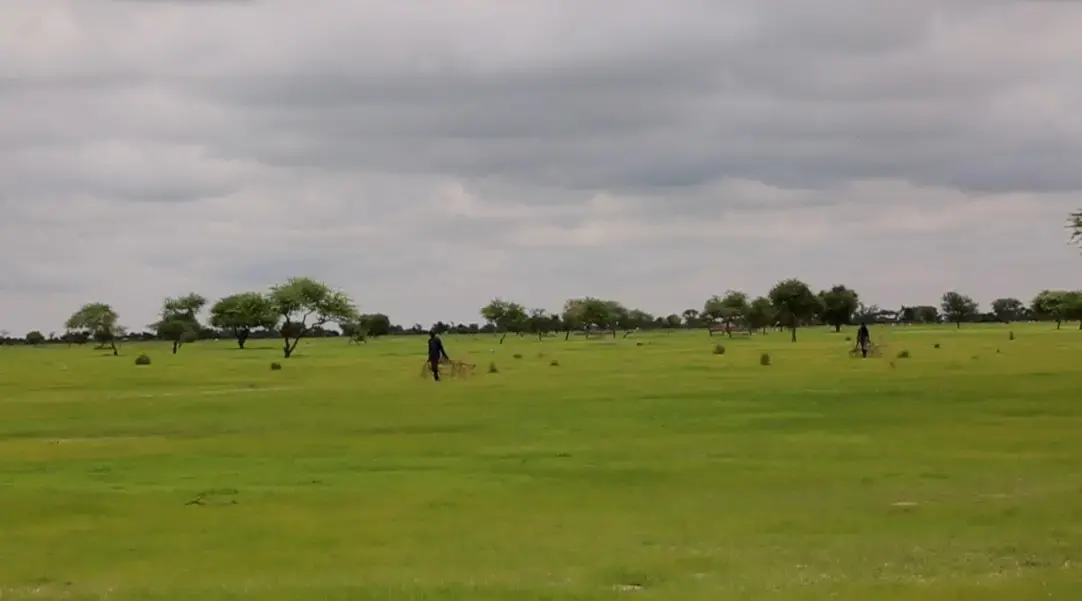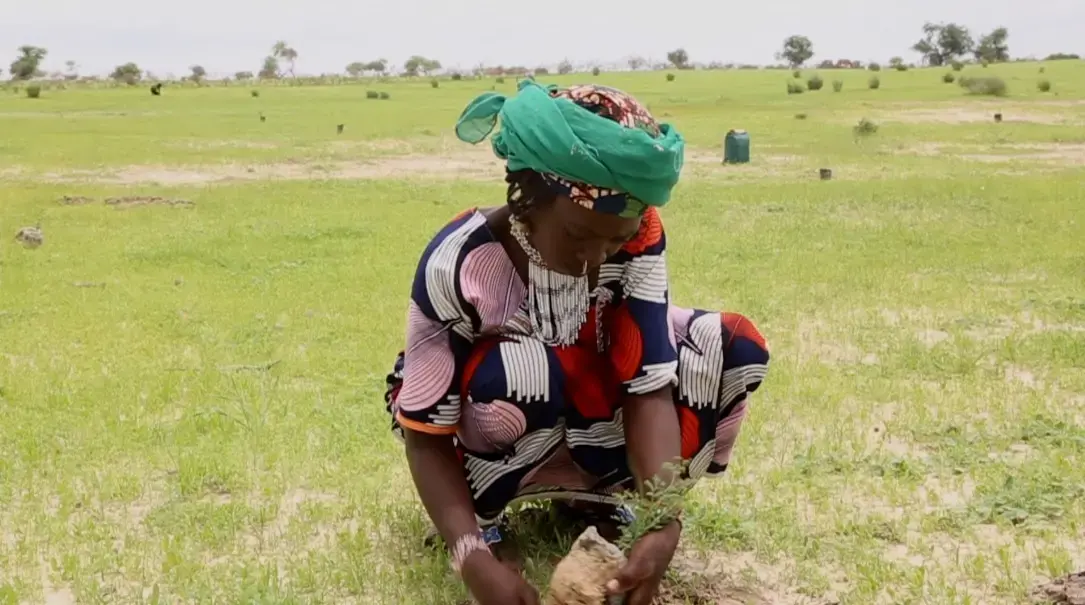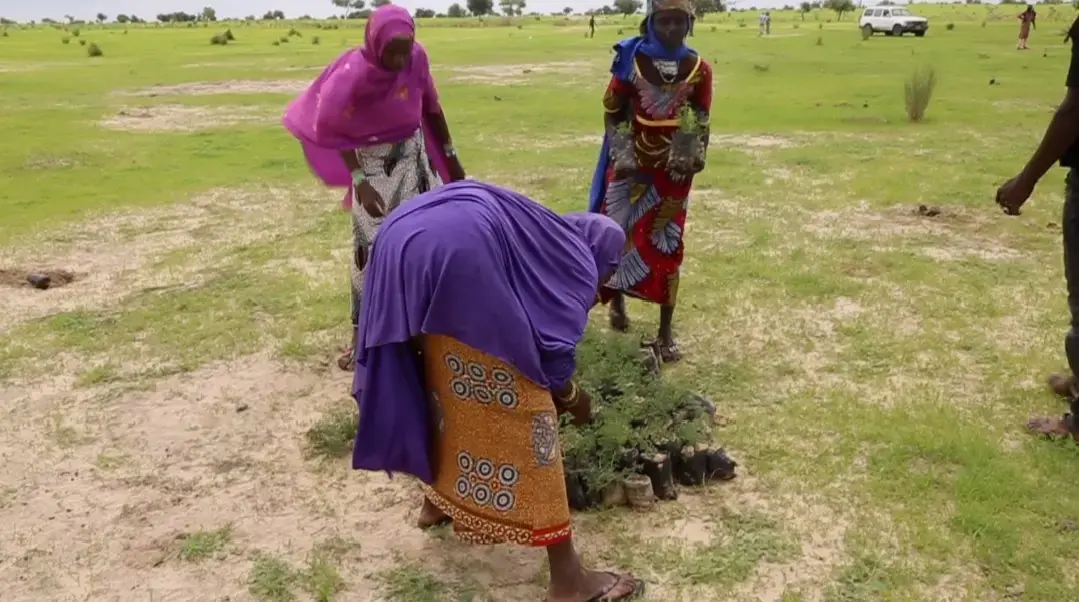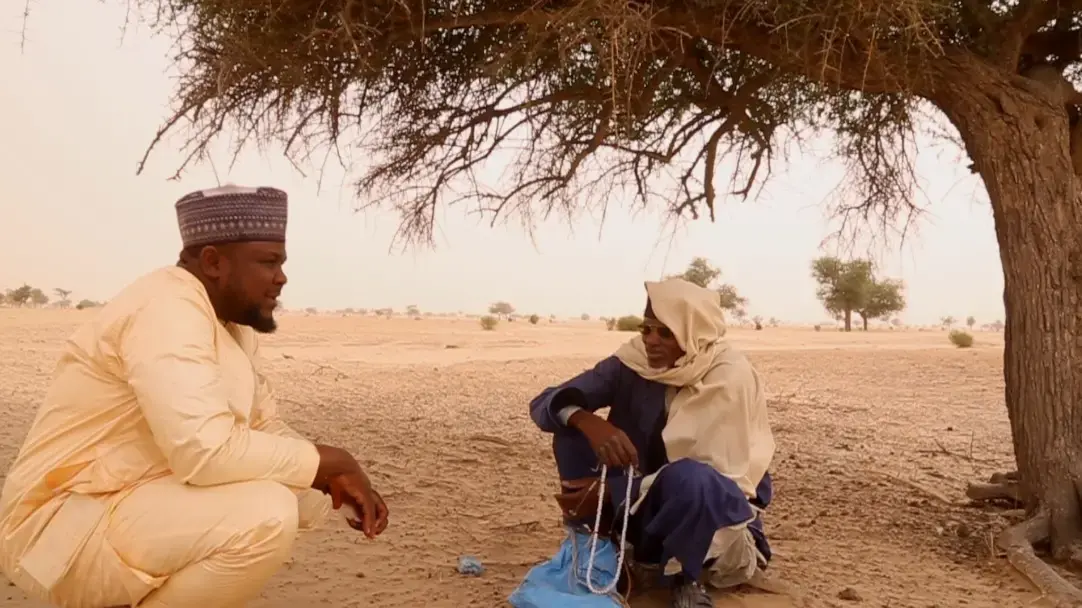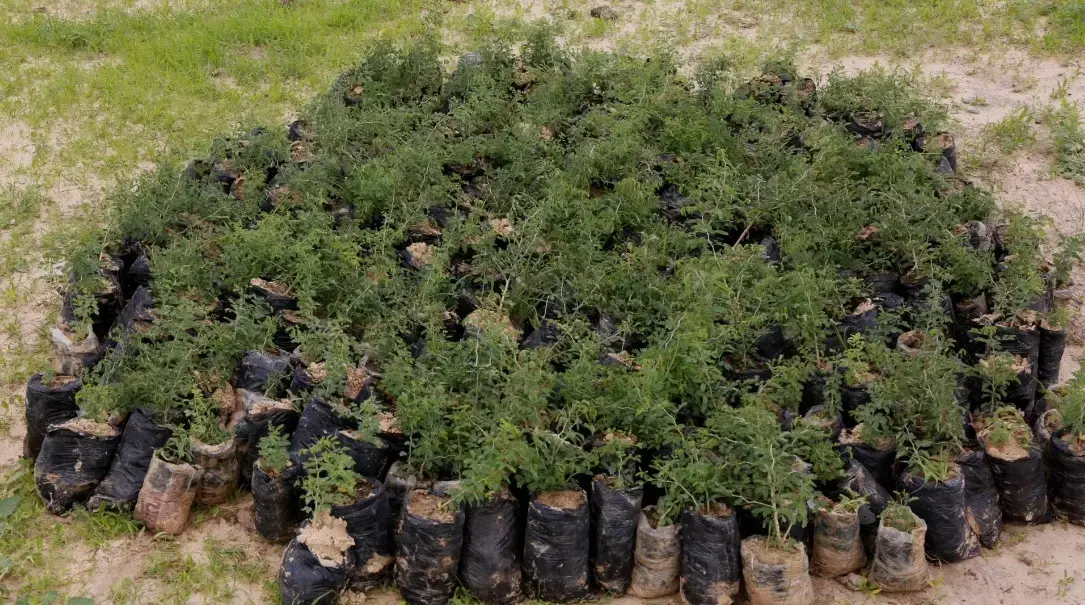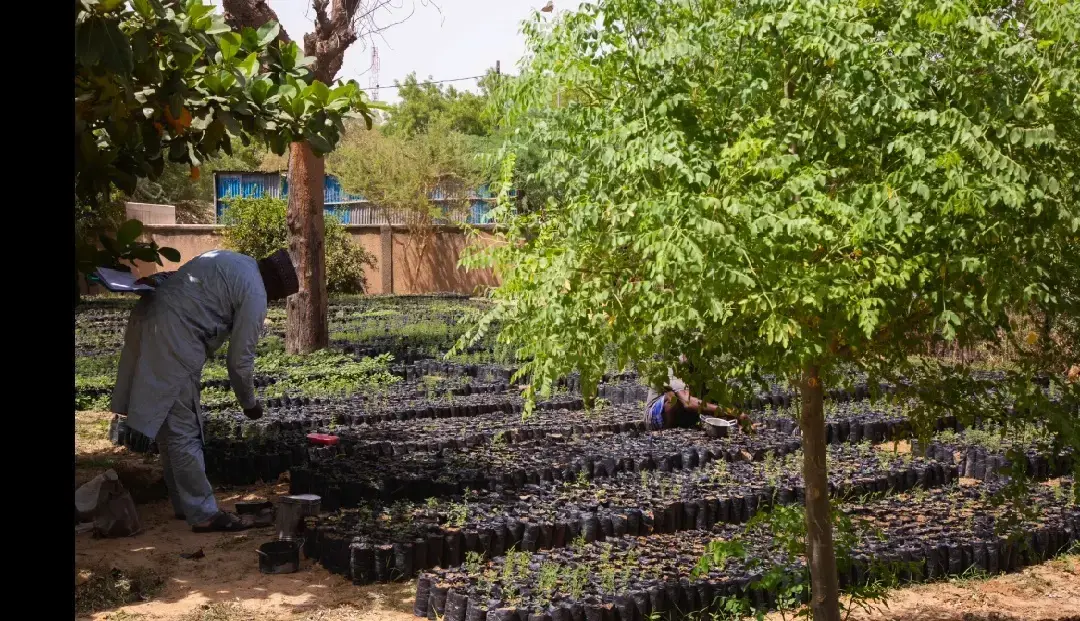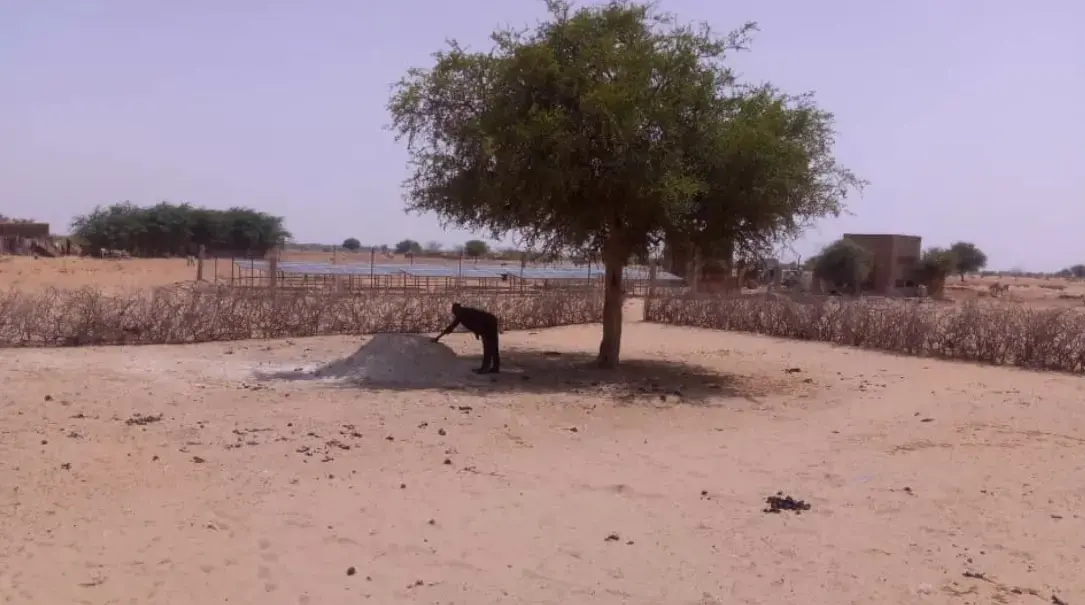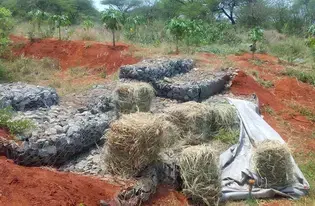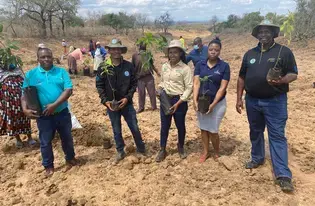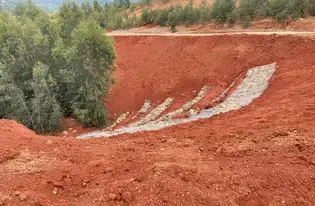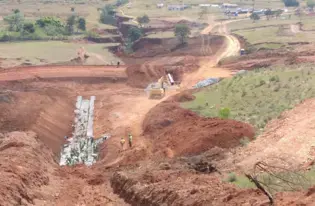Adamou Ali Zoubeirou didn’t set out to restore land when he started Addax in 2010. After a brief period working in the general supply trade, he learned that gum arabic, a natural emulsifier and stabilizer made from the branches of acacia trees, is in high demand in North America and Europe.
In Niger, there are over 160,000 hectares of naturally occurring or planted gum trees. If the existing gum arabic stands were rehabilitated and better managed, over 10,000 tons of gum could be harvested. “I had buyers all over Europe ready to buy all the national production. Addax alone was ready to contribute to the exportation of 100 tons of gum arabic a year,” Adamou says.
Adamou went to the acacia fields to investigate. The problem was immediately visible: Decimated trees, degraded land. Farmers told him that they had cut down their trees because they couldn’t find buyers. They had planted other crops, but those efforts had failed. “To restore that land, we had to plant again those trees that had produced gum arabic that had been decimated before,” Adamou says.
Along with re-planting the trees, which are native to Niger and other sub-Saharan African countries, Zoubeirou led the farmers to create cooperatives, learn proper crop treatments and understand the pricing system. So far, Addax has worked with 5,600 people in local communities. "We are delighted to hear that this sector will be restarted. We will ensure its smooth running", says Abubakar Yekini, a gum farmer in Niger. "It's the lack of maintenance of the production facilities that has kept these gums out of production, but this initiative to bring life back is a good thing."
Abubakar and his community members have so far planted 2,500 acacia plants, but they are planning to reach more than 25,000 in 2023. It has been difficult for Addax to secure financing locally for its work, even if it is creating long-term jobs for local communities. In 2021, however, the company received a low-interest loan from TerraFund for AFR100, an initiative of World Resources Institute, One Tree Planted, and Realize Impact that finances Africa's top restoration enterprises and projects. This supports the company’s restoration work, which includes assisted natural regeneration, to increase biodiversity and combat soil erosion and desertification.
Rampant tree-cutting is still a big problem in the area, despite laws meant to protect vegetation, Adamou says. It’s difficult to monitor the status of the fields, which require days of travel to access from Niamey, the country’s capital. Still, Adamou is confident that the success of Addax will help convince people of the benefits of growing trees for long-term prosperity rather than cutting them for immediate gain.
